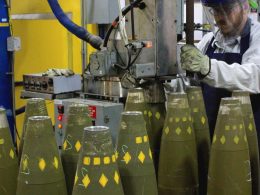Chinese tech companies have been making headlines for their rapid growth, innovation, and competitive edge in the global market. However, behind this success lies a work culture that often pushes employees to their physical and mental limits. This article delves into the demanding work environments of Chinese tech firms, examining the factors contributing to this phenomenon, its impact on employees, and comparisons with other tech industries worldwide.
The 996 Work Schedule: A Defining Feature

One of the most notable aspects of the work culture in Chinese tech companies is the “996” schedule. This term refers to working from 9 a.m. to 9 p.m., six days a week. It epitomizes the extreme dedication expected from employees, particularly in leading firms like Alibaba, Tencent, and Huawei. The 996 schedule has sparked significant debate, with proponents arguing it drives productivity and growth, while critics highlight its detrimental effects on workers’ health and well-being.
Driving Factors Behind the Intense Work Culture
Several factors contribute to the intense work culture in Chinese tech companies. Key among them are:
- High Competition: The tech industry in China is highly competitive, with numerous companies vying for market dominance. This competition drives companies to demand more from their employees to stay ahead.
- Rapid Growth: The rapid growth and expansion of Chinese tech firms necessitate long hours to meet ambitious goals and deadlines.
- Cultural Expectations: Traditional Chinese values emphasize hard work and perseverance. These cultural norms influence corporate expectations, leading to acceptance of long working hours.
- Government Policies: Supportive government policies and subsidies have fueled the tech boom, encouraging companies to push boundaries to capitalize on favorable conditions.
Impact on Employees
The demanding work culture in Chinese tech companies has profound impacts on employees, both positive and negative.
- Health Consequences: Long working hours lead to physical and mental health issues, including burnout, stress, and sleep deprivation. Cases of “death by overwork” have been reported, highlighting the severe toll on employees’ health.
- Productivity vs. Efficiency: While extended working hours may increase productivity in the short term, they can reduce efficiency over time. Exhausted employees are prone to errors and decreased creativity.
- Work-Life Balance: The intense work schedules leave little time for personal life, affecting employees’ relationships and overall quality of life.
- Employee Turnover: High stress and burnout levels contribute to higher turnover rates, as employees seek better work-life balance elsewhere.
Company Perspectives: The Push for Productivity
From the company’s perspective, the 996 schedule and demanding work culture are seen as necessary to maintain competitiveness and drive innovation. Companies argue that the intense work environment fosters a strong team spirit, dedication, and a results-oriented mindset. However, there is growing recognition of the need to balance productivity with employee well-being.
Comparative Analysis with Other Regions
When compared with other regions, the work culture in Chinese tech companies stands out for its intensity. Here is a comparative analysis table highlighting key differences:
| Aspect | China | USA | Europe |
|---|---|---|---|
| Work Hours | 996 schedule, long hours | 40-50 hours/week, flexible schedules | 35-40 hours/week, strong labor laws |
| Work Culture | High competition, rapid growth, cultural norms | Innovation-focused, work-life balance initiatives | Work-life balance, employee well-being prioritized |
| Government Influence | Supportive policies, tech-focused subsidies | Mixed influence, some tech incentives | Regulatory environment, labor protections |
| Employee Health | High stress, burnout, health issues | Varies, increasing focus on well-being | Strong focus on health and well-being |
| Turnover Rates | High due to stress and burnout | Varies, influenced by company culture | Lower due to better work-life balance |
Employee Initiatives and Responses
In response to the intense work culture, employees and advocacy groups have been calling for reforms. Initiatives include:
- Public Awareness Campaigns: Highlighting the negative impacts of the 996 schedule to garner public support for change.
- Legal Action: Employees suing companies for unfair labor practices and demanding better working conditions.
- Company Reforms: Some companies are beginning to adopt more flexible work policies and wellness programs to improve employee satisfaction and retention.
Future Outlook: Balancing Growth and Well-being
The future of the work culture in Chinese tech companies will likely involve a balancing act between maintaining high productivity and ensuring employee well-being. As global awareness of labor practices increases, and as companies seek to attract and retain top talent, there may be a gradual shift towards more sustainable work environments.
Analysis Table: Factors and Impacts of Intense Work Culture
| Factor | Description | Impact on Employees |
|---|---|---|
| High Competition | Intense rivalry among companies | Increased pressure, stress, and longer working hours |
| Rapid Growth | Need to meet ambitious targets | Extended work hours, burnout |
| Cultural Expectations | Emphasis on hard work and perseverance | Acceptance of long hours, risk of overwork |
| Government Policies | Supportive measures for tech growth | Encouragement to push boundaries, but potential neglect of labor rights |
| Health Consequences | Physical and mental health issues due to long hours | Burnout, stress, sleep deprivation, serious health risks |
| Productivity vs. Efficiency | Increased short-term productivity but decreased long-term efficiency | Risk of errors, reduced creativity, potential decline in quality |
| Work-Life Balance | Limited personal time due to demanding schedules | Strained relationships, lower quality of life |
| Employee Turnover | High turnover due to stress and burnout | Loss of talent, increased recruitment and training costs |
Comparative Table: Work Culture in Tech Industries by Region
| Aspect | China | USA | Europe |
|---|---|---|---|
| Work Hours | 996 schedule, long hours | 40-50 hours/week, flexible schedules | 35-40 hours/week, strong labor laws |
| Work Culture | High competition, rapid growth, cultural norms | Innovation-focused, work-life balance initiatives | Work-life balance, employee well-being prioritized |
| Government Influence | Supportive policies, tech-focused subsidies | Mixed influence, some tech incentives | Regulatory environment, labor protections |
| Employee Health | High stress, burnout, health issues | Varies, increasing focus on well-being | Strong focus on health and well-being |
| Turnover Rates | High due to stress and burnout | Varies, influenced by company culture | Lower due to better work-life balance |
By analyzing the demanding work culture in Chinese tech companies, this article underscores the need for a balanced approach that ensures both growth and the well-being of employees. As the global tech industry evolves, the lessons learned from China’s experience could guide the development of healthier work environments worldwide
Conclusion
The work culture in Chinese tech companies is a double-edged sword, driving rapid growth and innovation at the cost of employee well-being. While the 996 schedule and similar practices have contributed to the success of firms like Alibaba and Tencent, the negative impacts on health, productivity, and employee satisfaction cannot be ignored. Moving forward, Chinese tech companies must find ways to balance their ambitious goals with the need for a healthy and sustainable work environment.











